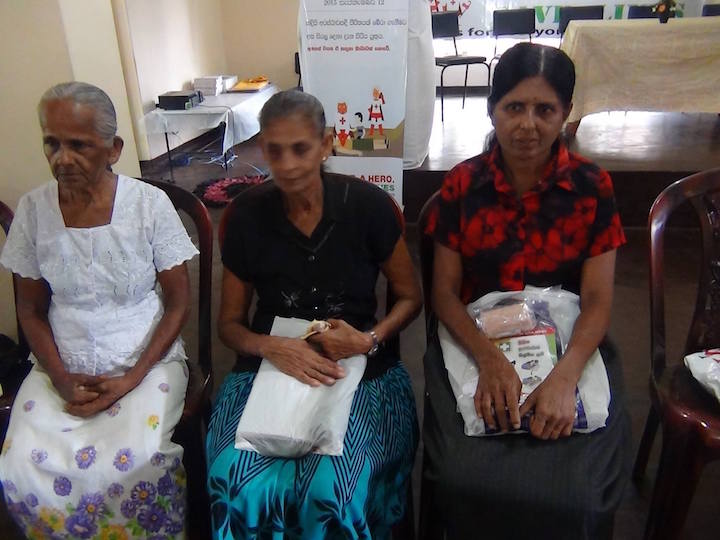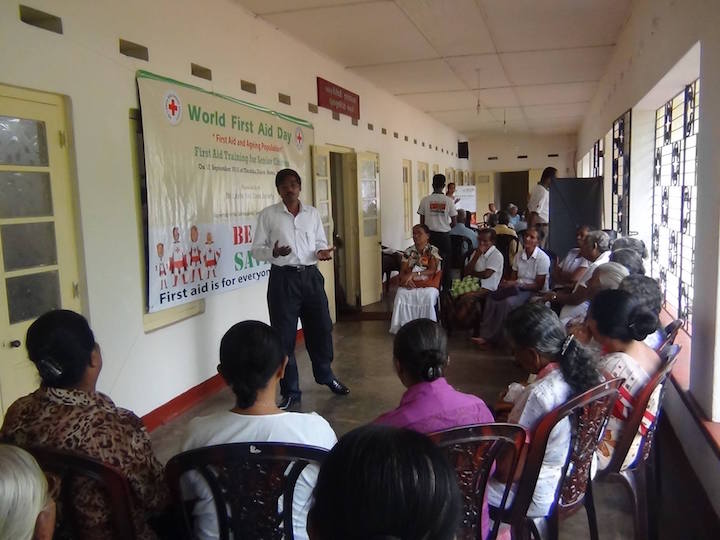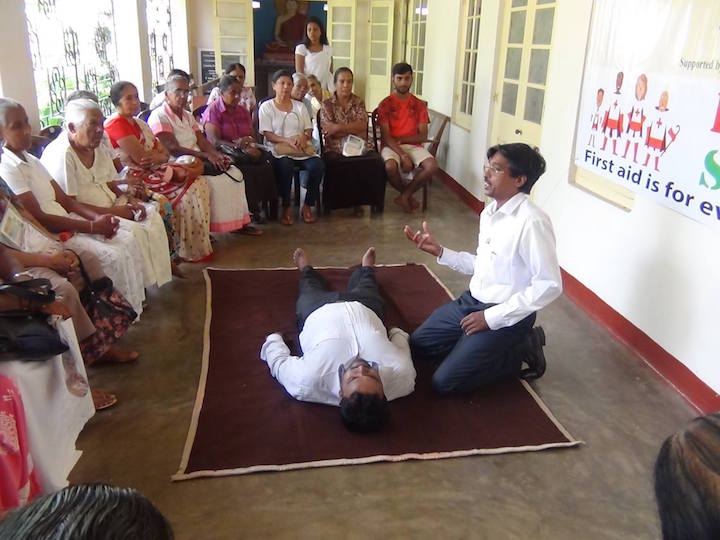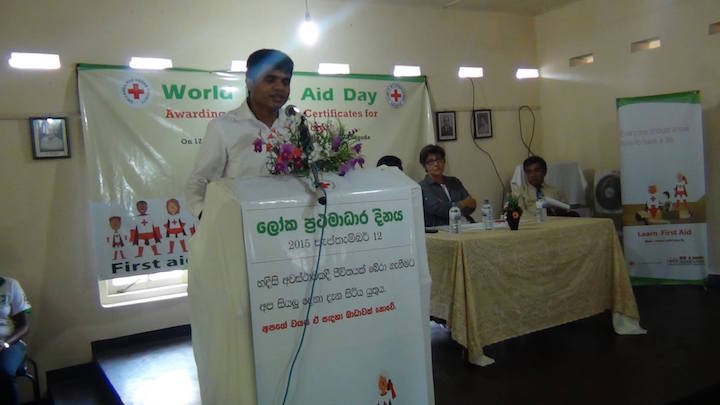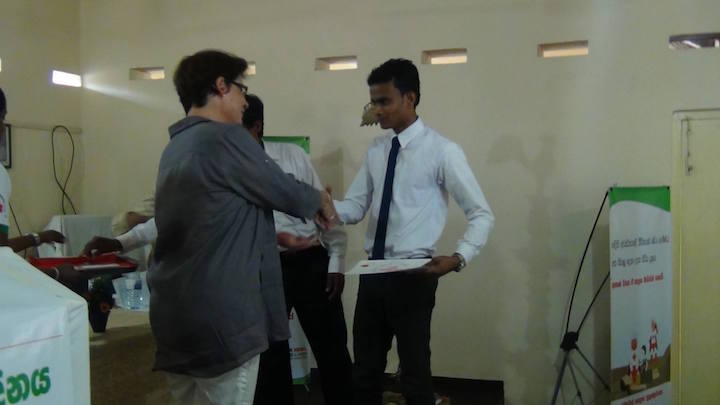Let’s take necessary steps to learn an art that can save a life.
12/09/2015 – Colombo, Sri Lanka. Today is World First Aid Day. This year we focus on providing this life saving skills to the aging population. Everyone should know how to save a life. Age is no barrier.
Every five seconds, someone in the world dies from an injury. Anyone, anywhere, at any time can suffer an injury as a result of an accident or a fall with little to no warning. However, older people are most at risk of suffering a serious injury or dying as a result of a fall – falls account for 40 per cent of all injury-related deaths.
Older people are also particularly susceptible to noncommunicable diseases (strokes, heart attacks, diabetes etc.) and extreme weather-related illnesses.
Being able to spot early warning signs and take preventable action can potentially be the difference between life and death in these situations.
Would you be able to pick up on the early warning signs and/or take the necessary preventive actions that can potentially be the difference between life and death in these situations?
Many of us would not. More often than not, panic, fear and lack of first aid skills stand in the way of saving a life at stake. But this can easily be changed.
One of the easiest ways to save a life is to get trained in first aid. More older people and care-givers trained in first aid means they can take swift and effective action to reduce serious injuries and spot early warning signs. This not only decreases the risk of complications and improves chances of survival but also reduces health costs.
In various Western Nations, their population is trained in first aid thanks to local laws in place. Contrastingly, in many low- and middle-income countries, the percentage of people trained is extremely low. Laws making first aid compulsory at every stage of the lifecycle result in both the lifesaving skills and confidence.
Being trained in first aid is not only knowing about what to do in case of an accident but also being aware of its causes and dangers. First aid training is an effective way to raise awareness among older people and their care-givers about safety issues and prevention. Preparing and empowering them with first aid skills fosters social inclusion and builds more resilient communities.
By 2050, two billion people, i.e. one out of five people worldwide will be older than 60 years of age. Low- and middle-income countries will experience the most rapid and dramatic demographic change. Older people are among the pool of more than 14 million people trained every year in life-saving skills by the Red Cross and Red Crescent National Societies. Providing basic first aid training to older persons not only improves their mental and emotional well-being but also the health of others. We see the effectiveness of first aid daily, but we also know there will always be another person to help.
The time to act is now. Get trained in first aid, save a life.. Call Sri Lanka Red Cross today for more information.
Meanwhile a special ceremony was held at the Thusitha Elder’s home in Mattegoda where First Aid instructors engaged with elders living at the home, educating them with First Aid.
Afterwards a special ceremony was also held to distribute certificate to the First Aid instructors who have completed their course in the past.
